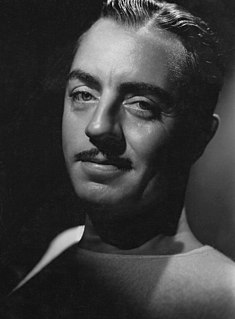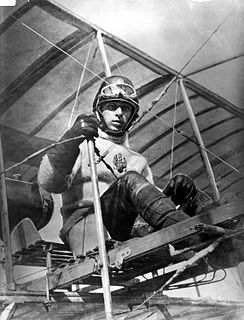A Quote by Loren Eiseley
Perhaps a creature of so much ingenuity and deep memory is almost bound to grow alienated from his world, his fellows, and the objects around him. He suffers from a nostalgia for which there is no remedy upon earth except as it is to be found in the enlightenment of the spirit--some ability to have a perceptive rather than an exploitive relationship with his fellow creatures.
Related Quotes
Some souls think that the Holy Spirit is very far away, far, far, up above. Actually he is, we might say, the divine Person who is most closely present to the creature. He accompanies him everywhere. He penetrates him with himself. He calls him, he protects him. He makes of him his living temple. He defends him. He helps him. He guards him from all his enemies. He is closer to him than his own soul. All the good a soul accomplishes, it carries out under his inspiration, in his light, by his grace and his help.
Modern man has transformed himself into a commodity; he experiences his life energy as an investment with which he should make the highest profit, considering his position and the situation on the personality market. He is alienated from himself, from his fellow men and from nature. His main aim is profitable exchange of his skills, knowledge, and of himself, his "personality package" with others who are equally intent on a fair and profitable exchange. Life has no goal except the one to move, no principle except the one of fair exchange, no satisfaction except the one to consume.p97.
He is not famous. It may be that he never will be. It may be that when his life at last comes to an end he will leave no more trace of his sojourn on earth than a stone thrown into a river leaves on the surface of the water. But it may be that the way of life that he has chosen for himself and the peculiar strength and sweetness of his character may have an ever-growing influence over his fellow men so that, long after his death perhaps, it may be realized that there lived in this age a very remarkable creature.
Man is more than his environment. It is from the innate quality of the Spirit in him, his inner storehouse, that he draws those ideas, his intuitions, which unify his perceptions of the external world instantaneously with a value which is qualitative and not quantitative, and which he embodies in the works of his culture - those achievements which belong not only to one particular time but to all times, and mark the path of his upward progress.
Pain! Deep, tearing, throbbing, needle-sharp, hammer-blunt pain – ripping through his body and through his mind, twisting deep in his guts and slicing at his skin with razors and broken glass. Oskan wanted to scream, but his vocal cords had burned away. He was desperate for water and he could hear it dripping all around him, but his charred tongue found nothing in his mouth but blisters and scorched flesh. For hours he lay on the ropes of the low bed, unable to move, the pressure of the hemp on his destroyed skin sending new agonies deep into his body.
When the father dies, he writes, the son becomes his own father and his own son. He looks at is son and sees himself in the face of the boy. He imagines what the boy sees when he looks at him and finds himself becoming his own father. Inexplicably, he is moved by this. It is not just the sight of the boy that moves him, not even the thought of standing inside his father, but what he sees in the boy of his own vanished past. It is a nostalgia for his own life that he feels, perhaps, a memory of his own boyhood as a son to his father.
I have never gone into a picture without first studying my characterization from all angles. I make a study of the fellow's life and try to learn everything about him, including the conditions under which he came into this world, his parentage, his environment, his social status, and the things in which he is interested. Then I attempt to get his mental attitude as much as possible.
His name was Michael R. Ross. I've never known what the "R" was for. He died, however, before I was 7. But he and I seemed to have had quite a nice relationship. He always called me grandlady, and he'd always talk to you as a person rather than as a child. So, I would go with him for his routes in his horse and buggy. So, my memory of him is pretty sharp, plus it has been accentuated by the stories that come out of the family.
Whoever is truly humbled — will not be easily angry, nor harsh or critical of others. He will be compassionate and tender to the infirmities of his fellow-sinners, knowing that if there is a difference — it is grace alone which has made it! He knows that he has the seeds of every evil in his own heart. And under all trials and afflictions — he will look to the hand of the Lord, and lay his mouth in the dust, acknowledging that he suffers much less than his iniquities have deserved.
It is a fearful thing to hate whom God hath loved. To look upon another-his weaknesses, his sins, his faults, his defects is to look upon one who is suffering. He is suffering from negative passions, from the same sinful human corruption from which you yourself suffer. This is very important: do not look upon him with judgmental eyes of comparison, noting the sins you assume you'd never commit. Rather, see him as a fellow sufferer, a fellow human being who is in need of the very healing of which you are in need. Help him, love him, pray for him do unto him as you would have him do unto you.
The world cannot bury Christ. The earth is not deep enough for His tomb, the clouds are not wide enough for His winding-sheet; He ascends into the heavens, but the heavens cannot contain Him. He still lives--in the church which burns unconsumed with His love; in the truth that reflects His image; in the hearts which burn as He talks with them by the way.
The word which is best said came nearest to not being spoken at all, for it is cousin to a deed which the speaker could have better done. Nay, almost it must have taken the place of a deed by some urgent necessity, even by some misfortune, so that the truest writer will be some captive knight, after all. And perhaps the fates had such a design, when, having stored Raleigh so richly with the substance of life and experience, they made him a fast prisoner, and compelled him to make his words his deeds, and transfer to his expression the emphasis and sincerity of his action.
I discovered early that the hardest thing to overcome is not a physical disability but the mental condition which it induces. The world, I found, has a way of taking a man pretty much at his own rating. If he permits his loss to make him embarrassed and apologetic, he will draw embarrassment from others. But if he gains his own respect, the respect of those around him comes easily.




































